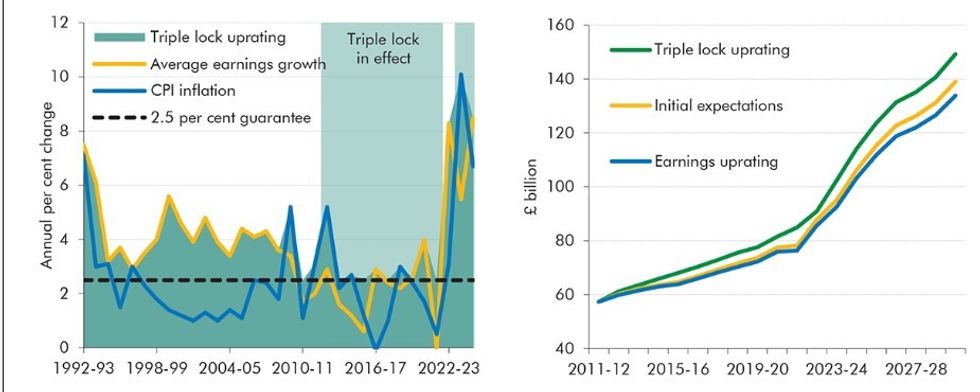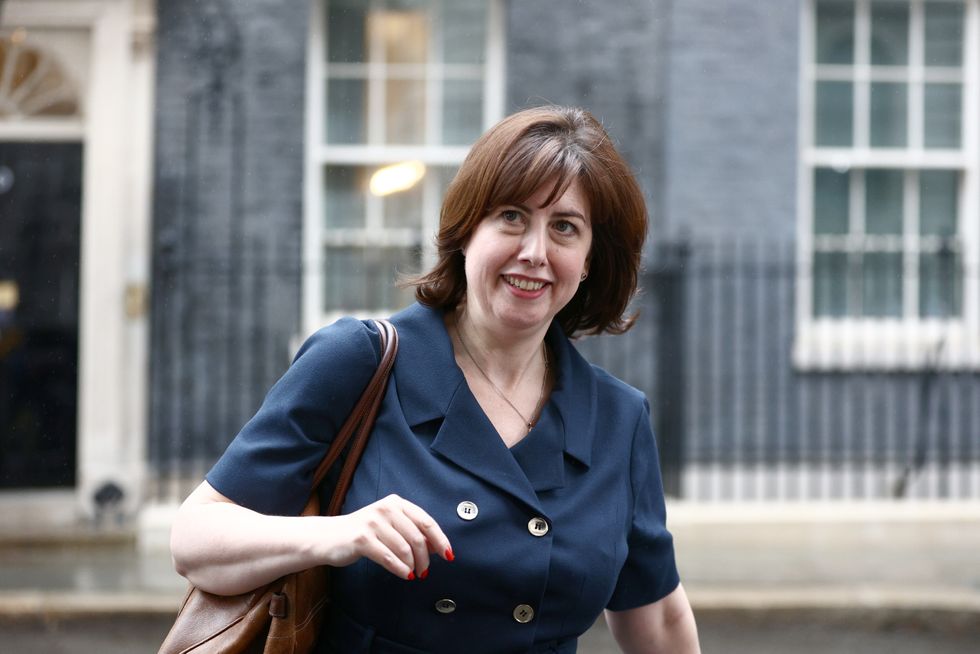State pension payments are to become a hidden “tax burden” for vulnerable retirees, while young working age people could benefit from a cut to National Insurance in Chancellor Rachel Reeves’s Autumn Budget, experts warn.
Reports are circulating Ms Reeves is preparing to break Labour’s manifesto promise and raise income tax in an effort to plug the estimated £50billion “black hole” in the public finances.
However, in keeping with the Government’s earlier pledge to not raise taxes on “working-age people”, it is understood National Insurance would be cut by 2p in a slight boon for workers.
Despite this, analysts note the current freeze on HM Revenue and Customs (HMRC) brackets means that the full state pension is close to crossing the personal allowance threshold which means retirees are in line to pay tax on payments alone.

This is referred to as fiscal drag, when tax thresholds remain at the same level during a time incomes or inflation are on the rise; resulting in Britons being pulled into higher brackets.
Thanks to the state pension triple lock, payment rates are guaranteed to increase every year in line with either the rate of inflation, average wages or 2.5 per cent; whichever is highest.
As it stands, the full new state pension is £230.25 per week, which comes to £11,973 a year. Next year, the retirement benefit’s full amount will be £12,547.60, bringing it closer to the personal allowance threshold of £12,570.
Karen Barrett, the founder of Unbiased, said: “The speculated hike in income tax and cut in National Insurance reveals how Chancellor Rachel Reeves is trying to avoid piling more tax onto working people, but this burden may be felt by landlords and pensioners.

“While cutting national insurance sounds appealing, it may also only benefit basic-rate taxpayers, as media reports suggest it may only apply to those earning under £50,270 a year.
“So, higher and additional-rate taxpayers will not benefit from the NI cut if this threshold applies, and pay more income tax. By reducing NI but increasing income tax, it makes it harder for pensioners to reduce their tax bill as the state pension continues to rise, but the personal allowance remains unchanged.
“This adds more pressure onto pensioners, as they face paying income tax on their state pension from 2027. “While it’s understandable to want to act quickly, rash decisions based on Autumn Budget rumours can be costly, with many never materialising.
“The impact of changes to NI and income tax may be different for everyone, so if you’re concerned, consider consulting a financial adviser to assess the impact on your finances.”
It is understood the Chancellor notified the Office for Budget Responsibility (OBR) about intentions to violate Labour’s electoral commitment by implementing personal tax increases.
The watchdog has been briefed that higher personal taxation represents a key component of the fiscal measures planned for unveiling. During a Downing Street address on Tuesday, the Chancellor laid groundwork for additional levies, stating that “each of us must do our bit”.
She notably avoided reaffirming Labour’s campaign commitment against raising income tax, National Insurance or VAT. The proposed fiscal adjustment would see income tax rates climb by two percentage points while National Insurance contributions fall by an equivalent amount, according to reports in The Times.
This reconfiguration could generate annual revenues exceeding £6billion for the Treasury. The burden of taxation would shift from employees towards groups including property owners and retired individuals under the reported plans.

The Chancellor is reportedly considering restricting National Insurance reductions to salaries under £50,270, ensuring higher earners contribute more substantially. Should the basic income tax rate increase proceed, it would mark the first such rise in half a century.
Ms Reeves’s rumoured approach has exposed rifts within Labour’s leadership over honouring electoral promises. Deputy leader Lucy Powell cautioned that abandoning commitments on income tax, National Insurance or VAT would erode “trust in politics”, telling the BBC:
“We should be following through on our manifesto, of course.”Powell emphasised that the Budget should focus on “putting more money back into the pockets of ordinary working people”, adding: “It’s really important we stand by the promises that we were elected on and that we do what we said we would do.”
Housing Secretary Steve Reed countered Powell’s stance, telling LBC: “We’re not damaging trust in politics. We’re getting on and delivering the manifesto.”
Our Standards: The GB News Editorial Charter







Follow